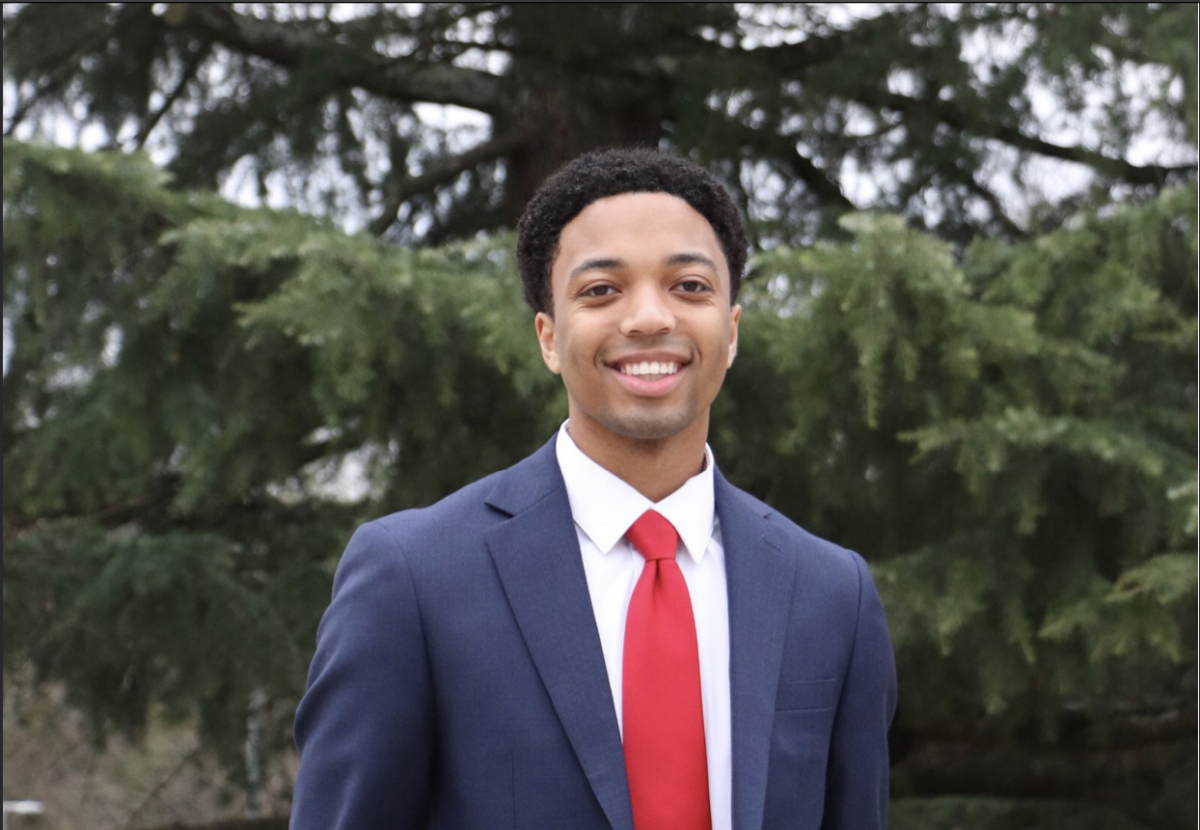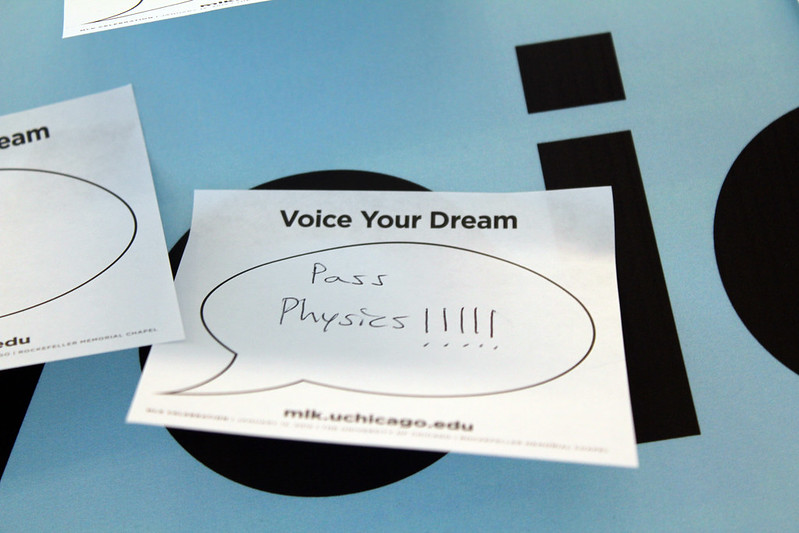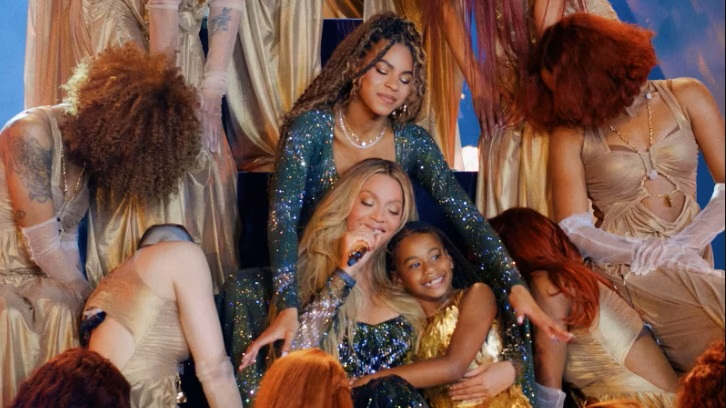Timothy Reid.
A name quite familiar in the NC State community. Reid is not new to politics or student government. He began his quest for change the moment he stepped foot on campus. Reid has served in Student Government (SG) since his first semester freshman year, he has held the positions of first-year senator and senator representing the Poole College of Management. From there, he became Student Body Vice President (SBVP).
A Native North Carolinian, Reid was raised in Cornelius from the age of two. From there, he joined NC State in August 2020. He is now a third-year junior majoring in Business Administration with a concentration in Finance.
In addition to involvement in SG, he has served as a Poole ambassador, Park ambassador and member of the Omicron chapter of Alpha Phi Alpha Fraternity Incorporated.
During his free time, he loves trying new things. Particularly, he enjoys the exploration of food. A major foodie, Reid, wanted us to tell y’all if you have the chance to go ahead and check out Sylvia’s Restaurant in Harlem, NY. It has some of the best southern food you’ll find!
His “phenomenal experience as SBVP during the 102nd session” and “the exceptional working knowledge he gained of how things work at the institutional level within the university” motivated him to run for Student Body President (SBP.) The opportunity to continue upon what he’s built in the 102nd session and expand to be more inclusive of all students while being intentional about his outreach to different communities around campus excites him.
Through his work with SG, he met Alison Markert, a second-year student studying Natural Resources with a concentration in Policy and Administration and minoring in Political Science. Markert’s extensive work throughout SG would lead her to become Reid’s running mate. Their diverse backgrounds and reach across campus were essential to their decision to run together.
The first pillar of their platform is “fostering a spirit of connectivity on campus.” Reid personally understands the importance of this as he arrived at NC State during the middle of the Covid-19 Pandemic. “When I came into college, it was very difficult to feel a sense of community because three weeks in fall 2020, we were sent home. It was all virtual that first semester. We came back the second semester and we were on campus, in person, but everything was still virtual in terms of classes and everything.”
This experience is why their platform is pushing for “the creation of a university-wide student mentoring program, which is something we’re very excited about. And this would be more of a social than an academic context … connecting new and transfer students to upperclassmen who have been here for a while.”
Reid believes “diversity and inclusion have been center stage for us in our advocacy, not just throughout our campaign, but also in the work that we’ve been doing throughout Student Government.” “I would say one of the things I’m most proud of is our outreach that will be intentional to minority communities who have been historically disenfranchised. I think, throughout the 102nd session of student government, we’ve done a much better job with representation, in terms of the student senate, specifically, also our executive cabinet.”
Nubian Message had the privilege of speaking with the Student Body President (SBP) Candidate to discuss his platform.
Nubian Message: You are currently serving as the Student Body Vice President. What lessons have you learned from your current position that you will apply to your presidency? How do you believe these experiences set you apart from your other candidates?
Timothy Reid: “I’d say one of the most important lessons I’ve learned hands down is the importance of delegation… if you have a certain project or initiative that you want to implement, putting someone with expertise in that field, over that project, so really being intentional, because our platform is wide ranging and ambitious, which I think is a good thing, but it’s also very realistic, and I think feasible”
“The vice presidency is really a unique role in that you get to experience both sides of the coin. So on the vice presidential side of things, it’s more of an internal role to SP. So you’re responsible for the management of the executive cabinet, which is comprised of nine different executive departments, and ensuring and seeing through the implementation of all of the platform initiatives that you ran on in the prior election. While the SBP is more outward facing. They’re the image and the face of SG and are the ones primarily responsible for communicating the student voice to the university administration. And in my role as VP, there are a number of opportunities I’ve had to engage in that same context such as meeting with different members of university administration at different levels, engaging with Dr. Scott pretty regularly, people such as Dr. Orders chief house and so that’s just been a really interesting perspective to work so closely with the President. Because he [McKenzy Heavlin] is that primary point of contact for SG. … So I think that’s a good wealth of knowledge to have for someone new coming in, especially being able to ensure a smooth transition and a good working relationship between the SBVP and SBP, I think that’s important coming from someone who served in that role directly.”
NM: A common misconception is that minority students are awarded significantly more scholarships when compared to their white counterparts at four-year colleges. Your platform stated that you want to increase student access to scholarships. What do you have to say to students who believe students of color receive scholarships based on unfair standards, limiting their own chances?
Reid: “I would say, being at a predominantly white institution, there has to be that extra onus, and there has to be that extra care to attention, I’m dedicated to making sure that we are bringing in minority students and those who have been historically underrepresented. That is something that the university has struggled with in recent years, specifically regarding, and I’m just speaking to my personal experience here, um, black male enrollment… But in my opinion, there does have to be that special attention dedicated to the recruitment of minority students … I would say to someone that says, minority students have an unfair advantage, I wouldn’t say that’s true. I’m really trying to make things as equitable as possible, ensuring that students no matter their background, no matter where they come from, that they have the same opportunity to education, and to all of the great resources that a school such as NC State has to offer. Just given the historic nature of marginalization within our communities, but definitely within the context of our nation, there does have to be that extra onus that we put on ourselves, to make sure that we’re doing that outreach … Targeting these individuals to come here because they won’t come here if we don’t have a cohesive and [substantial scholarship and aid package to offer them here they’ll go elsewhere, they’ll go to our HBCUs, they’ll go to our peer institutions that have much more to offer in terms of financial support. So we just want to make sure that especially for minority students, that that is not a barrier”
NM: Supporting a religiously diverse student population at a PWI like NC State is essential to making all students feel comfortable. How do you plan to create a religiously tolerant campus for students?
Reid: “ that’ll look like continuing on the great work that’s been done in the 102nd session in terms of anti bias training, specifically with appropriations. I think Harrison [Andrews] has done a phenomenal job with that. But I’d love to expand that, beyond [the] Treasury into Senate Committees, as well as executive departments … And it’s something that we have to contend with. So when we acknowledge it, it makes it easier to deal with. And we don’t want there to be any barriers to student engagement in student government. And I really think that that’s where it starts, and promoting just a more inclusive environment for all, especially religious groups. A couple of things that we touch on in our platform. One is recognizing dietary restrictions for certain religious groups so we want to be more cognizant of that in our dining halls and our dining facilities across campus … One of our campaign team members is actually the president of the Muslim Student Association. And so one piece of feedback she also brought to us was the introduction of more interfaith prayer spaces around campus … One thing that she specifically told us is that there’s a lack of coverage, especially on Centennial Campus… And one thing I’d really like to incorporate in the 103rd session is something that Allison and I have been doing over the course of the campaign is just targeted outreach to specific student groups. So like roundtable conversations, we’ve had roundtable conversations with minority student organizations, with Greek life, with politically active organizations. And so I think that’s one great way that student government can really engage with different groups across the community and get a sense of what their needs and concerns are.
NM: There has been an increased demand for mental health services nationwide, yet many have remained understaffed. How do you plan to create accessibility to student mental health resources while still being realistic about the bandwidth capabilities of our counseling center?
Reid: “I think a great place to start is to expand on a lot of the work that’s currently happening, and we’ve been calling for this since last year and throughout this year [is] the expansion of college specific resources. So we know that some colleges such as CALS, College of Education, Engineering all have college specific counselors, but we’d love to see that expanded to all colleges … And so we think that it will also free up some resources at the counseling center on the university level, just so that they’re able to better meet demand. Speaking of the counseling center on the university level, we would love to increase their ability to provide long term care to our students … We would love to see that continued treatment be able to happen here on campus. And that just comes along with making sure that our counseling center is adequately funded, staffed with enough personnel and resources to be able to meet the needs of a growing student body and a growing campus … We would also love to incorporate mental health education into college specific curriculum. So we’d love to see mental health education incorporated into those first-year intro classes, along with all of the other information that is useful to know coming to the university as a first year student or as a new student … And that adjustment and transition period can be difficult. So just equipping them with the resources, and the knowledge … One thing we’d like to explore the possibility of our wellness weekends. And this is something that some of our peer institutions, such as Chapel Hill have recently implemented … So we want these wellness days to actually be a break for students and a time for them to be able to disconnect and recharge rather than just a catch up day… [we want to introduce] protections around those wellness days, so that students don’t have a test the day after, or the test moved up in advance of the wellness day … then the addition of green spaces around campus and national nature corridors.”
NM: What sets your campaign apart from the other three tickets and why do you feel students should support you?
Reid: “There are two main things that set us apart. One is [that] these aren’t issues that we just started caring about, you know, like three months ago, or four months ago in preparation for the campaign. These are issues that we’ve been passionate about and advocating on behalf of have throughout the duration of our time here … Myself, Allison, we are involved members of the Wolfpack community, and really have, I would say, a good gauge of what students expect from university administration, and what students want to get out of their experience here at NC State. So I think really just being able to channel our experiences and leverage those to effectively communicate to administration, how students are feeling on these issues, I feel like we’re uniquely positioned to do that, just by virtue of our involvement across campus. And secondly, our experience within Student Government, I would say that we are by far the most qualified ticket to run you know, in terms of the connections and relationships we’ve been able to form with the university administration, within Student Government, university partners across campus [and] the unique roles that we’ve been able to serve in, we both currently chair selected departments. I’m the current SBVP, which gives me unique insight into not only the vice presidency, but also the role of the President, working so closely with him over the course of the past year. So I just think that’ll allow us to, you know, as soon as the session starts later this month, just be able to hop in and hit the ground running and not lose a beat. And the transition, I think, will be much better than if someone who were less experienced because we already have such a great knowledge of how things are supposed to run. And you know, how to go about things in an efficient manner.”
To learn more about the Reid/Markert campaign and their platform, you can go to their website at https://reidmarkert.org.
Your vote matters. We ask that you take the time to review all candidates and their platform’s efforts and choose wisely. Voting will begin Monday, March 6 at 12:01 am and continue through Tuesday, March at 11:59 pm. Results will be announced Wednesday, March, at 7:30 pm.







Anonymous • Mar 16, 2023 at 11:07 pm
5